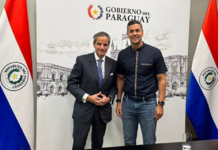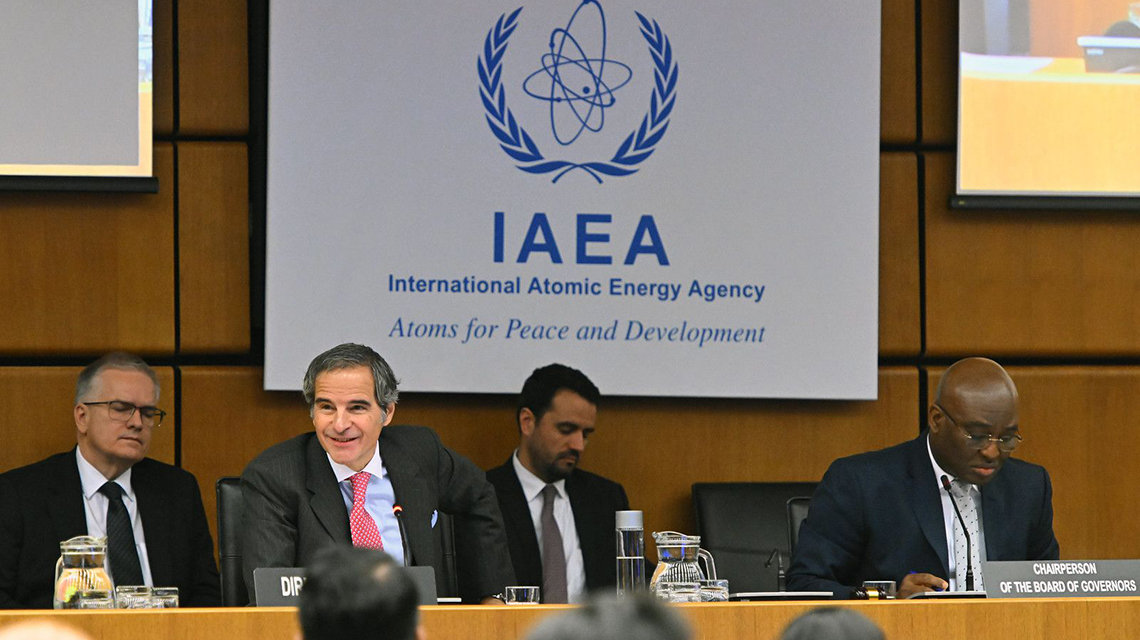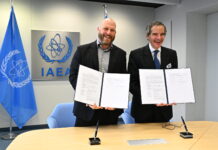IAEA Director General Engages in Constructive Dialogue with Iran: Challenges and Opportunities
In recent developments concerning international nuclear diplomacy, the Director General of the International Atomic Energy Agency (IAEA), Rafael Mariano Grossi, recently updated the Board of Governors on significant high-level discussions he had in Tehran. His meetings with Iran’s new government were described as constructive, yet he highlighted that several critical concerns remain unresolved.
The Core Issue: Enriched Uranium Accumulation
One of the primary concerns Grossi emphasized was the accumulation of enriched uranium at extremely high levels in Iran. This issue has not only been a significant point of contention but also a source of global unease. Enriched uranium is a material that can be used for both civilian energy purposes and, at higher enrichments, for nuclear weapons. Therefore, its accumulation poses a potential threat to international peace and stability.
Grossi stated, "It is clear that the accumulation of enriched uranium at very high levels has been a matter of concern for many around the world." He further explained his appeal to the Islamic Republic of Iran to exercise restraint in this matter. He requested Iran not only to show restraint but also to consider halting the increase of its uranium stockpile enriched to sixty percent. This level of enrichment is significant because it brings Iran closer to the capability of producing nuclear weapons, although it is still below the ninety percent enrichment typically required for a nuclear bomb. Encouragingly, Grossi reported that Iran accepted his request, marking a positive step forward.
The Path Forward: More Work Ahead
While this acceptance from Iran is a constructive move, Grossi reminded all parties involved that this is merely an initial step. He emphasized that much more needs to be done to ensure long-term stability and adherence to international agreements. Grossi explained, "It is the duty of the IAEA to preserve the regime of which we are the custodians – the non-proliferation regime. And this has been at the heart of this important effort."
The non-proliferation regime that Grossi refers to is an international framework aimed at preventing the spread of nuclear weapons. It also promotes the peaceful use of nuclear energy and furthering the goal of achieving nuclear disarmament. The IAEA plays a crucial role in safeguarding these objectives by monitoring nuclear activities and ensuring compliance with international treaties such as the Treaty on the Non-Proliferation of Nuclear Weapons (NPT).
Understanding the Technicalities: Enriched Uranium
To provide a clearer understanding for those less familiar with nuclear technology, enriched uranium is uranium whose concentration of the isotope uranium-235 has been increased through a process called enrichment. Natural uranium contains about 0.7% uranium-235, while enrichment processes can increase this concentration to various levels. Low-enriched uranium (LEU), which contains up to 20% uranium-235, is typically used in nuclear power plants. However, when uranium is enriched beyond 20%, it is considered highly enriched uranium (HEU) and has more potential applications, including military uses.
Iran’s production of uranium enriched to sixty percent is particularly concerning because it represents a significant step towards the capability to produce weapons-grade uranium. Therefore, Grossi’s call for restraint and reduction in stockpiles is a crucial diplomatic effort to mitigate potential risks.
Reactions and Global Implications
The international community has been closely monitoring the situation in Iran, and Grossi’s update has sparked reactions from various stakeholders. Many countries, especially those in the Western world, have expressed relief at Iran’s acceptance of the IAEA’s request, viewing it as a positive development towards de-escalating tensions.
However, there remains skepticism about Iran’s long-term intentions. Some experts argue that Iran’s nuclear ambitions could still pose a threat if not properly managed and monitored. This underscores the importance of ongoing dialogue and rigorous verification measures to ensure compliance with international regulations.
Good to Know: The Role of the IAEA
Understanding the role of the IAEA is crucial in appreciating the significance of Grossi’s recent discussions. Established in 1957, the IAEA is an autonomous international organization that collaborates with the United Nations. Its primary mission is to promote the peaceful use of nuclear energy while preventing its use for military purposes.
The agency achieves this through a combination of inspections, monitoring, and providing technical assistance to member states. By ensuring that countries adhere to nuclear safety standards and non-proliferation commitments, the IAEA plays a vital role in maintaining global security.
Conclusion: A Balanced Approach
In conclusion, while the recent dialogue between the IAEA and Iran marks a step in the right direction, it is clear that sustained efforts are required to address the ongoing challenges posed by Iran’s nuclear program. The IAEA’s commitment to preserving the non-proliferation regime is crucial, and its work in facilitating constructive engagement with Iran is commendable.
As the situation evolves, the international community must remain vigilant and supportive of diplomatic efforts that encourage transparency and cooperation. By fostering an environment of trust and accountability, we can hope to achieve a more stable and secure world, free from the threat of nuclear proliferation.
For further insights and developments on this topic, you can follow updates from credible sources such as the IAEA’s official communications and reputable news outlets.
For more Information, Refer to this article.


































